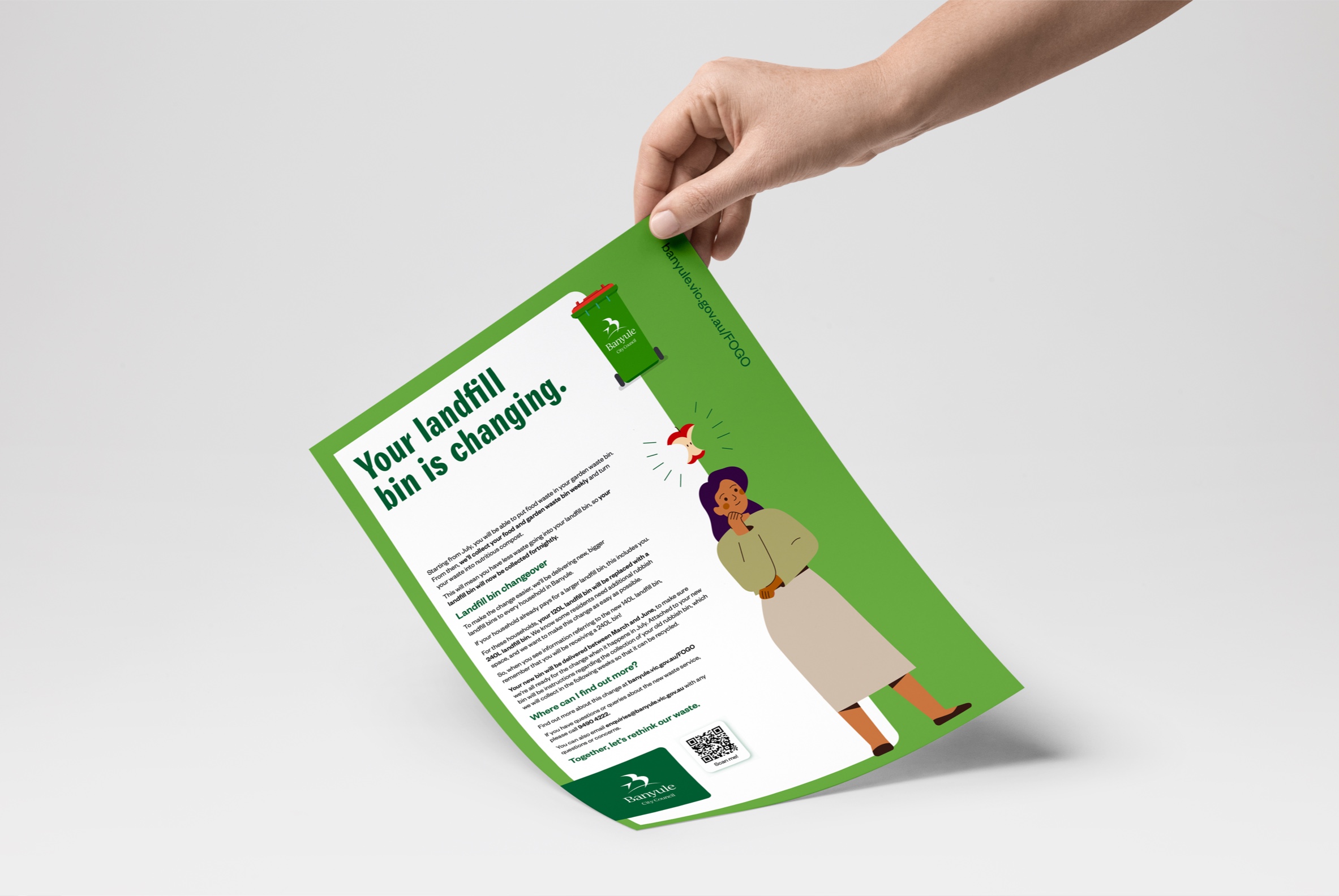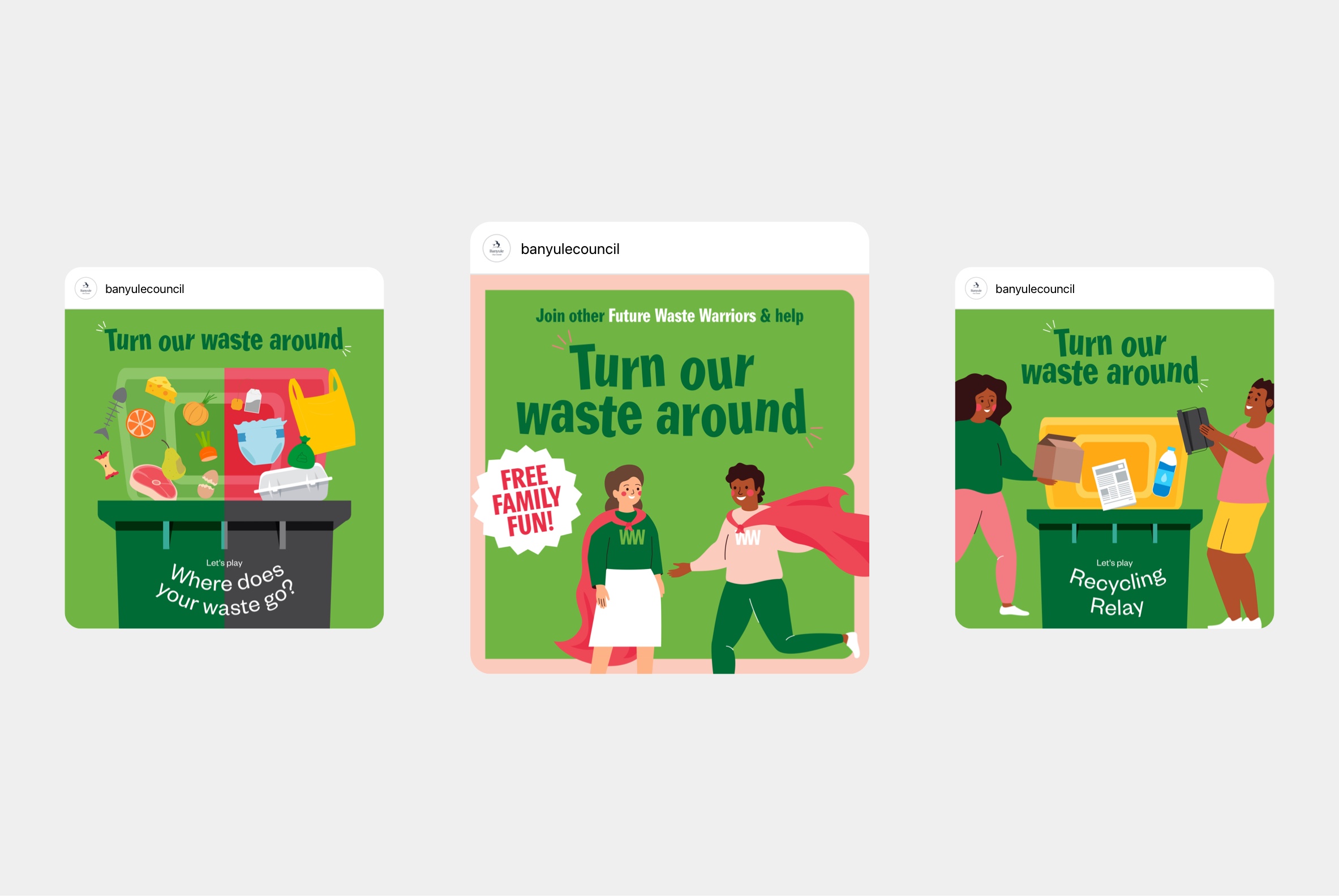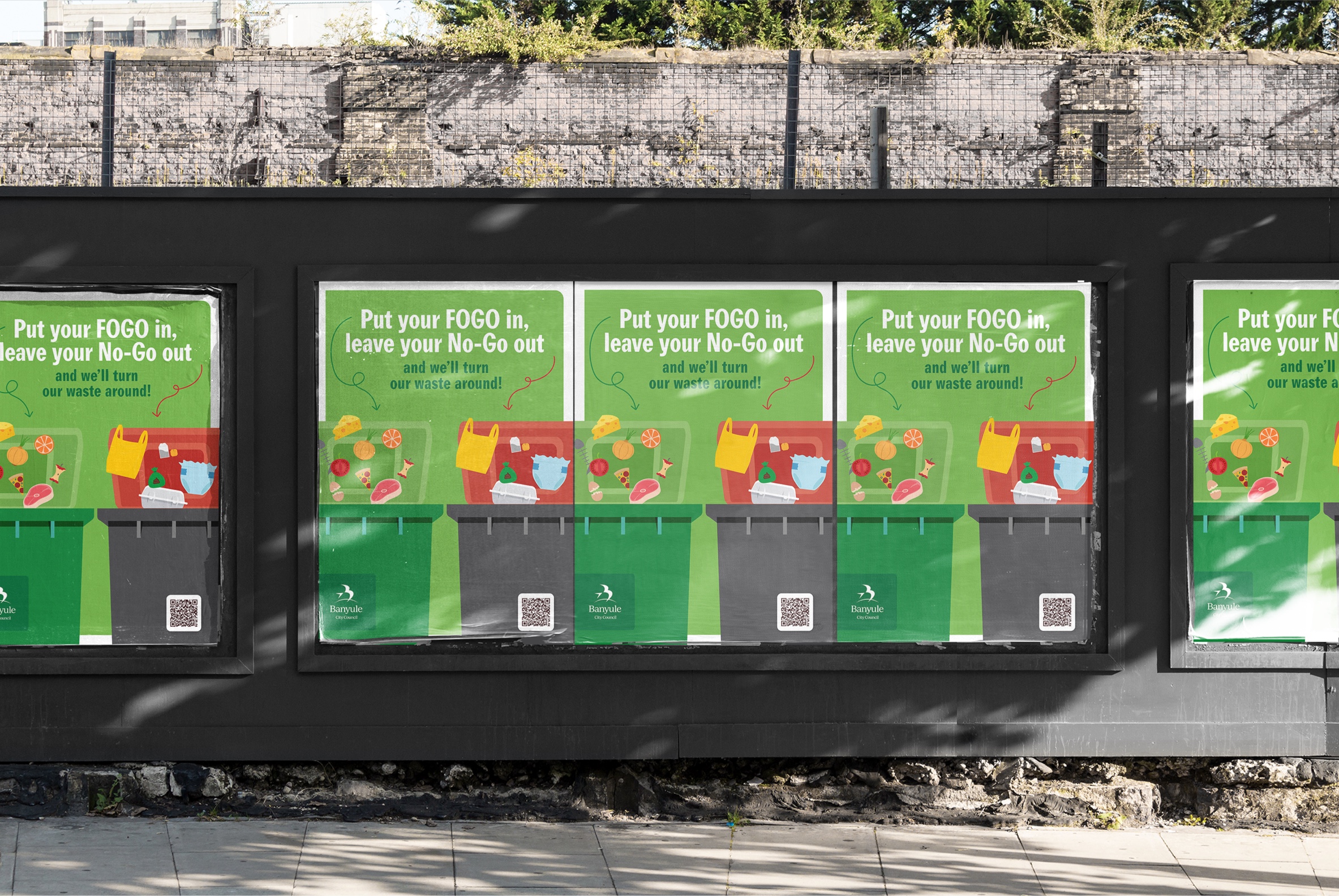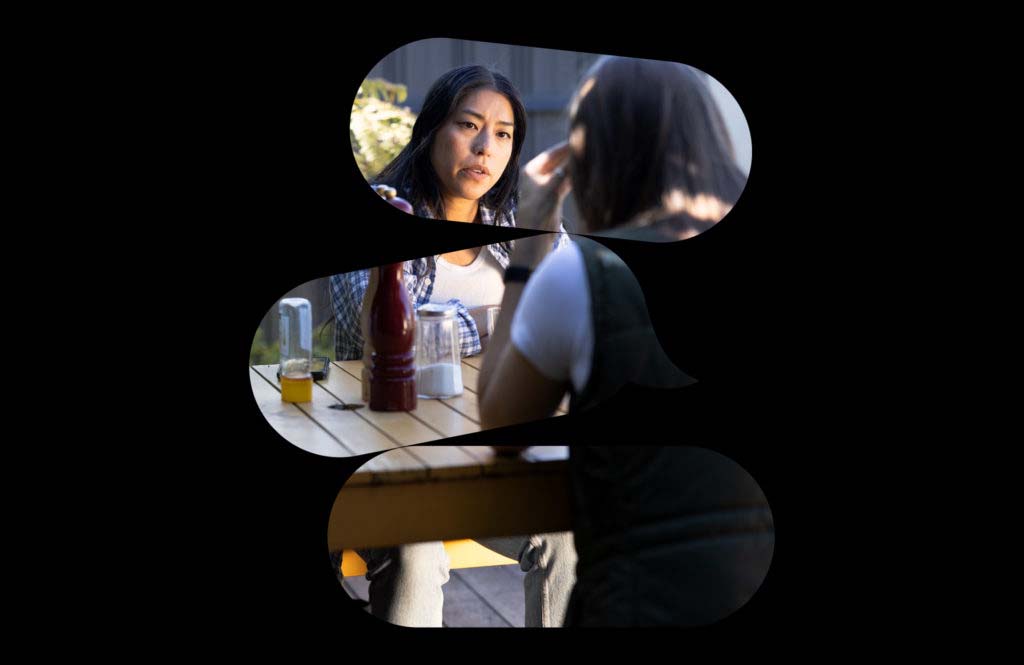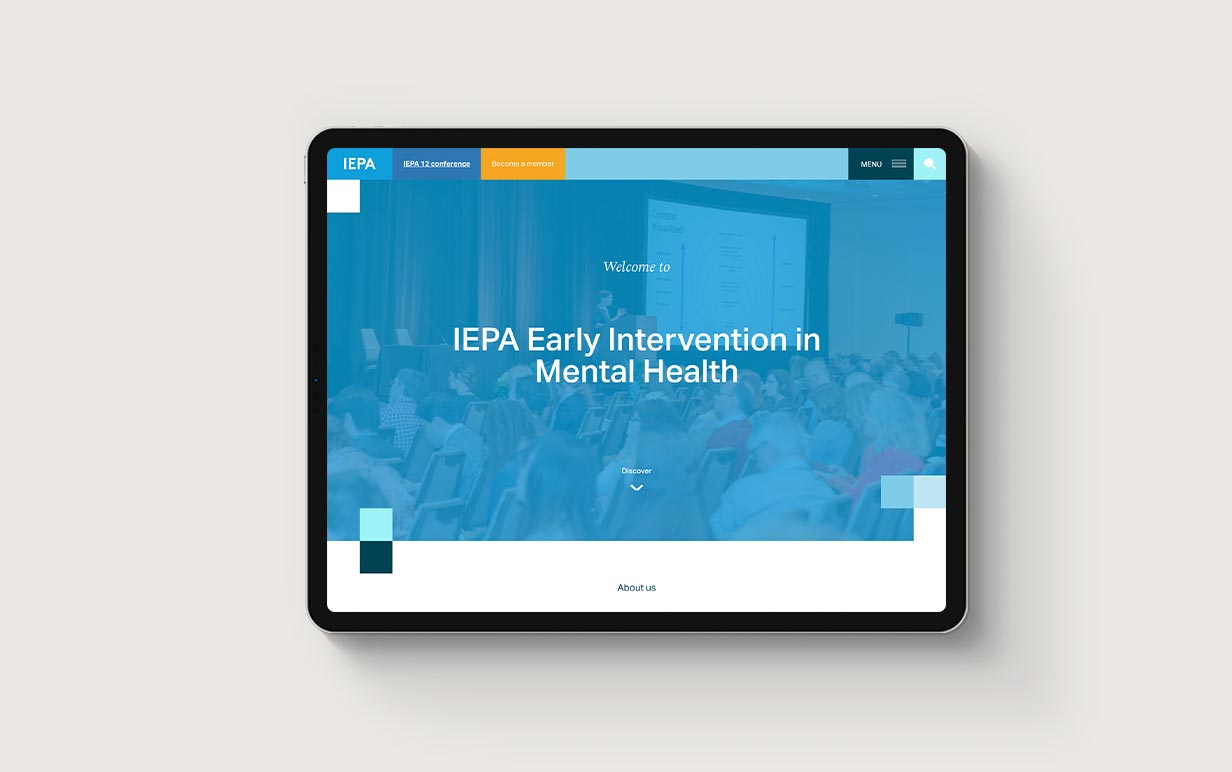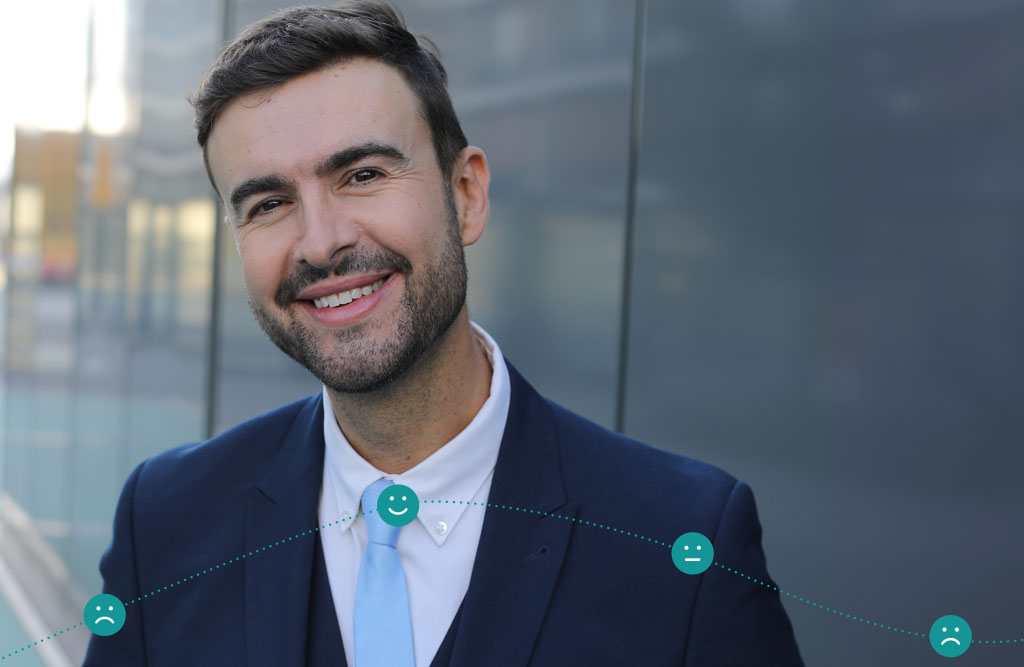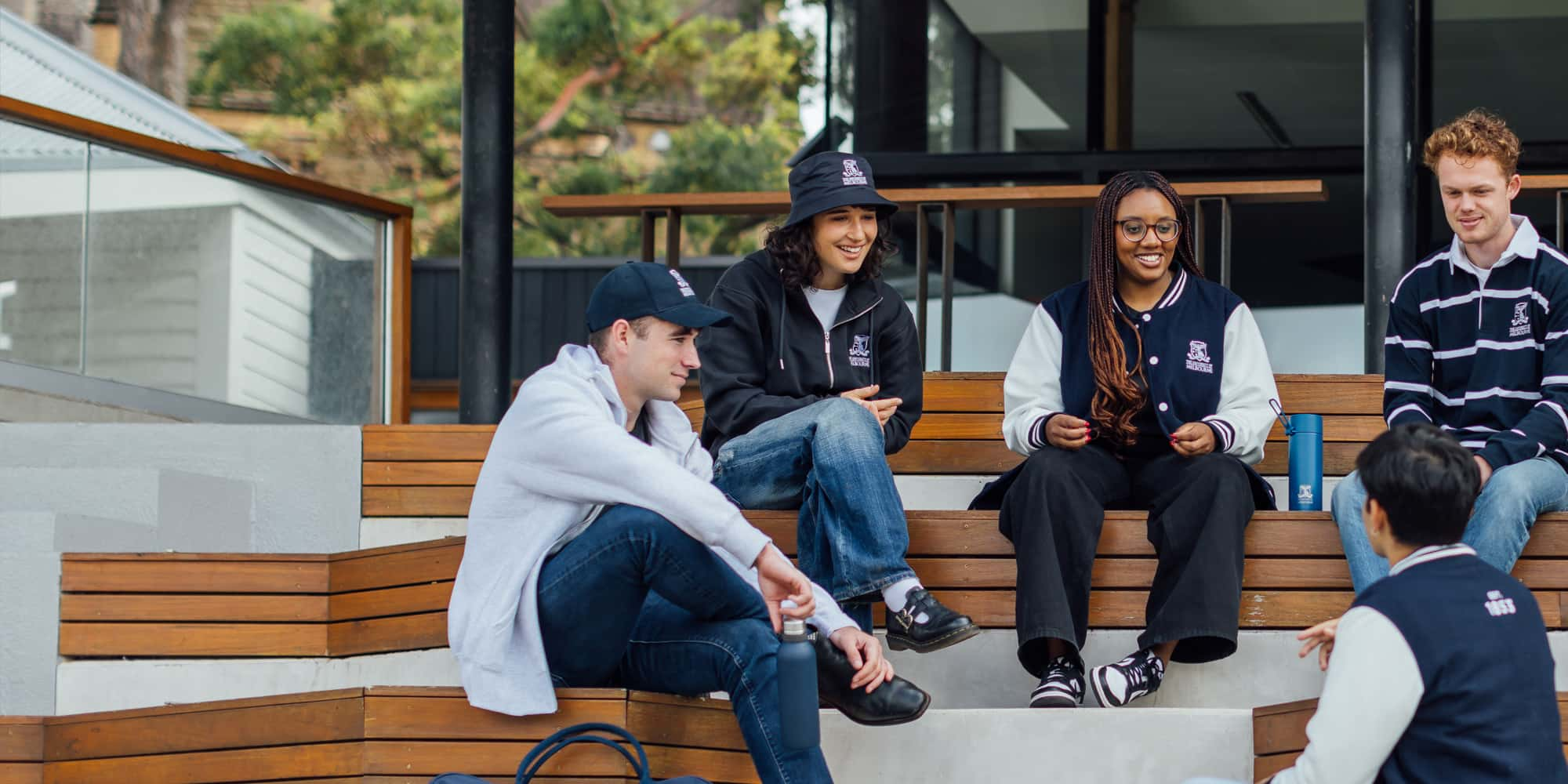Framing waste change as an exciting, community-led movement.
Learn more about this project
Challenge
In 2020, 1.3 million tonnes of food was wasted in Victoria. Responding to this dire issue, local councils began rolling out food organics and garden organics (FOGO) bins for households. And in 2021, Banyule City Council jumped on board.
For their first trial of FOGO bins across 500 households in their community, Banyule City Council engaged Ellis Jones for this preliminary communications and behaviour change work. This then evolved into a series of feedback focus groups to test the campaign and messaging, before delivering the entire communications campaign for the municipality’s 2022 FOGO service roll out.
Response
By drawing on behaviour change techniques of social norming, incentives and collective messaging – while also leveraging Australia’s dominant (76%) concern for climate change – we developed a campaign that made new waste behaviours feel easy, exciting and for everyone.
The core concept, ‘Let’s rethink our waste’, was inclusive and action oriented. While the rhyming tagline of ‘If you can eat it or it grows, into your FOGO bin it goes,’ increased the familiarity and memorability of the messages.
Social norming was the key driver in this campaign. This was achieved through using personal pronouns and writing the messages in the present tense (e.g. ‘We’re rethinking food waste in Banyule’). We also reframed the bin changes to be part of a broader environmental movement – one that’s shared, active and something that residents are already a part of. This steered waste behaviour change away from a siloed act and towards one that is a partnership between residents, Council and the rest of community. We also provided clear updates that took the resident along on the journey, such as ‘your new food waste service is arriving soon.’
From a visual perspective, we developed an inclusive suite of illustrations that positioned the change as relevant to the collective and individual. This strengthened our appeal to people’s desire to be part of the collective. We also provided residents in the Banyule trial community with the opportunity to be illustrated. This way, the visual design was literally representing their community.
Can we make this statement a little more simple? Community ownership, or individual ownership or leaning on collective capability? I’m not sure, but would love your thoughts?
Outcomes
Residents engaged exceptionally well with the FOGO bin trial, with 86% of residents finding the materials clear and easy to understand.
Our communications work for the FOGO bin rollout trial exceeded our objectives, proving highly successful. While we aimed for 80% of residents to positively engage in the trial, our results were as follows:
- 95% of residents put the right bins out on bin day.
- 90% of pre-trial survey respondents correctly identified the changes taking place, indicating they understood what the trial was (n=49).
- 84% of residents found it easy or very easy to adapt to the change.
- 80% of residents felt motivated to participate as part of a collective.
- 239 unique visitors went to the trial webpage, with a total of 657 views across the trial period. 19 residents joined the Facebook group.
- Every survey respondent understood the benefits of the trial ‘very well’ or ‘reasonably well’ (55% and 45%, respectively, n=49).
- 91% of respondents were very or somewhat optimistic about the purpose and outcomes of the trial (31% and 60%, respectively, n=49). Only 6% were ‘not at all’ optimistic.
- There was only a 1-3% contamination rate across the trial area.
